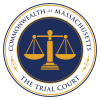- Trial Court Law Libraries

Article 2 (1780)
It is the right as well as the duty of all men in society, publicly, and at stated seasons to worship the Supreme Being, the great Creator and Preserver of the universe. And no subject shall be hurt, molested, or restrained, in his person, liberty, or estate, for worshipping God in the manner and season most agreeable to the dictates of his own conscience; or for his religious profession or sentiments; provided he doth not disturb the public peace, or obstruct others in their religious worship.
Precedents, Following Law, and Quotations
Nathaniel Ward, Body of Liberties, (1641):
Article 94, Section 3. If any man shall Blaspeme the name of god, the father, Sonne or Holie ghost, with direct, expresse, presumptuous or high handed blasphemie, or shall curse god in the like manner, he shall be put to death.
First Amendment, United States Constitution, became law Dec. 15, 1791 when ratified by Virginia, the 10th state to approve the 10 Amendments to the U.S. Constitution, now known as the Bill of Rights:
“Congress shall make no law respecting an establishment of religion, or prohibiting the free exercise thereof; or abridging the freedom of speech, or of the press; or the right of the people peaceably to assemble, and to petition the government for a redress of grievances.”
Massachusetts Constitution, Articles of Amendment, Article 46, ratified and adopted November 6, 1917:
“SECTION 1. No law shall be passed prohibiting the free exercise of religion.”
Massachusetts General Laws, c. 272 § 36 (current law) :
Whoever wilfully blasphemes the holy name of God by denying, cursing or contumeliously reproaching God, his creation, government or final judging of the world, or by cursing or contumeliously reproaching Jesus Christ or the Holy Ghost, or by cursing or contumeliously reproaching or exposing to contempt and ridicule, the holy word of God contained in the holy scriptures shall be punished by imprisonment in jail for not more than one year or by a fine of not more than three hundred dollars, and may also be bound to good behavior.
For atheists, an 1836 Massachusetts court case might provide some limited cover and serve in some way as “don’t ask, don’t tell.” Chief Justice Lemuel Shaw wrote the opinion in the case.
Commonwealth v. Kneeland, 37 Mass (20 Pick.) 206, 221 (1836):
“[U]nderstanding the statute against blasphemy as we do, and as we have already explained it, that it is not intended to prevent or restrain the formation of any opinions or the profession of any religious sentiments whatever, but to restrain and punish acts which have a tendency to disturb the public peace, it is not repugnant to, but entirely consistent with, this second article of the Declaration of Rights.. . . Applying these doctrines to the statute under consideration, and construing it with reference to the constitution, I have come to the conclusion, that it was not intended to punish a denial of the existence of God; but only such denial when made in a manner calculated to give just offence to others, and with a bad intent.”
In a dissenting opinion in the same case, Justice Marcus Morton analyzed the two sentences in the Second Article of the Declaration of Rights and directly addressed the subject of the constitutional rights of atheists.
Commonwealth v. Kneeland, 37 Mass (20 Pick.) 206, 233, 242 (1836):
“The first member of the sentence contains a complete proposition, and secures to every citizen of the Commonwealth perfect liberty of worship, not only as to time and mode, but the more essential parts, the principles and doctrines which he may adopt, profess and inculcate. It embraces all who believe in the existence of God, as well Jews, Mahometans and Deists, as Christians of every denomination. But clearly does not include atheists.
The second proposition . . . clearly protects every citizen, not only in adopting, but in professing, whatever tenets he may think right; and necessarily includes the right of advocating and disseminating them. No restraint, in this respect, is imposed. But every one, in the adoption of his moral principles and the formation of his religious creed, has an unlimited scope, and is left to the free exercise of his own reason and the unbiased dictates of his own conscience. . . Applying these doctrines to the statute under consideration, and construing it with reference to the constitution, I have come to the conclusion, that it was not intended to punish denial of the existence of God; but only such denial when made in a manner calculated to give just offence to others, and with a bad intent.”
